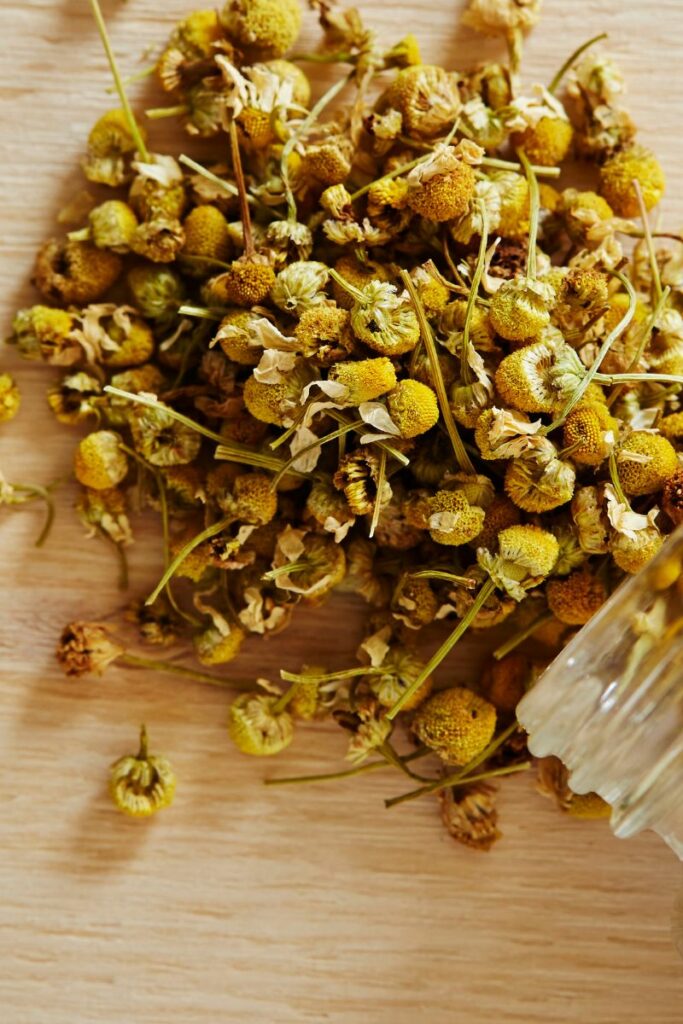Top 5 Natural Stomach Bug Home Remedies
Dealing with a stomach bug can be miserable, but stomach bug home remedies provide gentle, natural ways to ease symptoms like nausea, cramps, and an upset stomach. These remedies work to soothe your digestive system while supporting your body’s recovery from viral gastroenteritis, food poisoning, or other stomach illnesses.

Disclaimer: This is not medical advice. Information and statements shown here are for educational and informational purposes only and are not to replace the advice of your healthcare professional.
This post may include affiliate links. Please refer to our disclaimer for full disclosure.
By using simple, effective ingredients like herbal teas and honey-based syrups, you can manage stomach flu symptoms and feel relief faster. Combined with plenty of fluids, a bland diet, and rest, these remedies are a great way to support your body naturally. Let’s explore the top stomach bug remedies you can make at home to help you or your loved ones feel better in no time!
What Is a Stomach Bug?
A stomach bug, also called viral gastroenteritis, is an infection that causes inflammation of the stomach and intestines. It’s often caused by viruses like norovirus or rotavirus, but it can also be triggered by bacteria such as E. coli or contaminated food and water. This illness spreads easily through close contact with an infected person or touching contaminated surfaces.
Common symptoms of a stomach bug include:
- Nausea and vomiting
- Diarrhea
- Stomach pain or cramping
- Muscle aches
- Low-grade fever
- Signs of dehydration, like dry mouth or feeling very thirsty
People of all ages can get a stomach bug, but young children, older adults, and those with weaker immune systems are at higher risk for severe symptoms. While it usually resolves in a short time, severe cases may require immediate medical attention.

Why Choose Natural Remedies For The Stomach Bug?
Natural remedies and herbs are a great way to help ease symptoms like nausea, upset stomach, and diarrhea without relying solely on over-the-counter or prescription medications. These remedies can soothe your gastrointestinal system, rehydrate your body, and promote quicker recovery.
Using teas made from herbs like ginger, chamomile, and peppermint is a gentle, effective way to calm inflammation in the stomach. Paired with good hygiene, plenty of fluids like clear broths or oral rehydration solutions, and a bland diet (think saltine crackers or the BRAT diet), natural remedies provide holistic support for healing.
By keeping these herbs and remedies on hand, you can feel better faster when the stomach flu or food poisoning strikes!
Top 5 Stomach Bug Home Remedies
When the stomach flu hits, it’s important to find relief that’s gentle on your system and helps ease those uncomfortable symptoms like nausea, stomach pain, and cramping. These five natural remedies can soothe an upset stomach while promoting recovery.
1. Peppermint Tea
Why it works:
Peppermint tea is a great way to relax your digestive system. The menthol in peppermint has antispasmodic effects, meaning it helps reduce cramps and discomfort caused by the stomach bug.
How to use it:
- Ingredients: 1-2 tsp dried peppermint leaves, 1 cup boiling water.
- Instructions: Add the leaves to boiling water and steep for 5-10 minutes. Strain, sweeten with honey (optional), and enjoy.
Added benefits: Peppermint tea can also improve mental alertness and help with headaches, making it a versatile remedy during recovery.

2. Ginger Tea
Why it works:
Ginger is one of the best natural remedies for nausea and inflammation. Its active compounds, called gingerols, reduce stomach pain and promote digestion, helping your body process food and fluids.
How to use it:
- Ingredients: 1-inch ginger root, 1 cup water, honey (optional).
- Instructions: Slice the ginger, boil it in water for 10-15 minutes, strain, and sweeten with honey if desired.
Added benefits: Ginger also boosts your immune system, which is important when dealing with viral infections like norovirus or bacterial infections from E. coli.
3. Chamomile Tea
Why it works:
Chamomile tea has calming properties that soothe cramping and inflammation in the gastrointestinal system. It also helps promote better sleep, which is essential for recovery.
How to use it:
- Ingredients: 1 tbsp dried chamomile flowers, 1 cup boiling water.
- Instructions: Steep the flowers in boiling water for 5 minutes, strain, and drink. Add honey or lemon for flavor.
Added benefits: Chamomile reduces stress and anxiety, helping you relax while your body heals.
4. Fennel Seed Tea
Why it works:
Fennel seeds are a great way to ease bloating, gas, and digestive spasms. They also promote detoxification by acting as a mild diuretic.
How to use it:
- Ingredients: 1 tsp fennel seeds, 1 cup boiling water.
- Instructions: Lightly crush the seeds, add them to boiling water, steep for 10 minutes, strain, and drink.
Added benefits: Fennel tea can freshen your breath and aid in overall digestion, making it helpful for upset stomachs caused by food poisoning or viral gastroenteritis.
5. Marshmallow Root Infusion
Why it works:
Marshmallow root has mucilaginous properties, meaning it forms a soothing gel that coats and protects your stomach lining. This reduces irritation and inflammation caused by stomach flu symptoms.
How to use it:
- Ingredients: 1 tbsp dried marshmallow root, 1 cup cold water.
- Instructions: Combine the marshmallow root and cold water in a jar. Let it infuse overnight in the fridge, strain, and drink. It’s best served cold.
Added benefits: Marshmallow root also helps with sore throats and respiratory irritation, which can happen with viral infections like influenza virus.

These natural remedies are safe for most people, including young children and older adults, but always consult a healthcare provider for severe symptoms like high fever, bloody stools, or signs of dehydration. Pair these teas with plenty of rest, a bland diet, and oral rehydration solutions to help your body bounce back quickly!

Soothing Stomach Bug Herbal Syrup Recipe
Ingredients
- 1 tbsp dried peppermint leaves
- 1 tbsp dried chamomile flowers
- 2 tsp grated fresh ginger or 1 tsp dried ginger
- 2 tsp dried marshmallow root
- 2 tsp crushed fennel seeds
- 2 cups water
- 1 cup raw honey avoid for children under 1 year old
Instructions
- Combine the peppermint, chamomile, ginger, marshmallow root, and fennel seeds in a small bowl.
- In a medium saucepan, bring 2 cups of water to a boil. Reduce the heat to low, add the herbal blend, and let it simmer gently for 10-15 minutes.
- Turn off the heat, cover the pan, and let the herbs steep for an additional 20 minutes to extract their full properties.
- Use a fine mesh strainer or cheesecloth to strain the herbal liquid into a clean bowl or measuring cup, discarding the herbs.
- While the liquid is still warm (but not hot), stir in the raw honey until fully dissolved. This ensures the honey retains its beneficial properties.
- Pour the syrup into a sterilized glass jar or bottle and seal tightly. Store in the refrigerator for up to 2 weeks.
Notes
How to Use:
Adults: Take 1 teaspoon every 2-3 hours as needed. Children over 1 year old: Take ½ teaspoon every 2-3 hours.Notes:
- This syrup is soothing for symptoms like nausea, stomach pain, and dry mouth.
- Pair with plenty of fluids, a bland diet, and rest for best results.
- If symptoms persist or worsen, consult a healthcare provider.
Enjoy this gentle, effective syrup whenever the stomach bug strikes!
Need an herbal mix that's safe for kids and adults alike? Try this Tummi-Tea that support digestive health, ease stomach discomfort, and provide gentle relief for an upset stomach.
FAQs About Stomach Bug Home Remedies
Can these remedies replace medical treatment?
No, these natural remedies are supportive measures to ease symptoms like upset stomach and nausea. You should seek medical care if symptoms of dehydration, high fever, bloody stools, or severe abdominal pain occur. Also, consult a healthcare provider if symptoms last longer than a few days.
Are these remedies safe for kids?
Yes, these remedies are generally safe for young children when adjusted for their age. Avoid honey for children under 1 year old to prevent botulism. Always consult a healthcare provider if you’re unsure.
How often can I drink these teas?
Drinking 2-3 cups daily is usually safe for most people. For young children, smaller amounts (like half a cup) are a good idea.
What are the best fluids for hydration?
The best thing you can do to prevent dehydration is to drink plenty of fluids. Oral rehydration solutions, clear broths, sports drinks, and even ice chips can help. Avoid fruit juices and dairy products, as they may worsen diarrhea.
What foods should I eat during a stomach bug?
Stick to a bland diet. Foods like saltine crackers, bananas, rice, applesauce, and toast (BRAT diet) are easy to digest. Avoid spicy foods, fatty foods, and solid foods until your stomach feels better.
What are the signs of dehydration to watch for?
Common symptoms of dehydration include:
Dry mouth
Dark urine or very little urine
Extreme thirst
Dizziness or weakness
Signs of severe dehydration include sunken eyes, lack of tears, and lethargy.
Seek immediate medical attention if these occur.
How can I prevent a stomach bug?
Practice good hygiene by washing your hands with soap and water.
Use hand sanitizer when soap isn’t available.
Clean contaminated surfaces with a bleach-based household cleaner.
Avoid close contact with an infected person.
Ensure food is properly cooked and avoid contaminated water or food.
What’s the most common cause of a stomach bug?
In the United States, norovirus infection is the most common cause. It spreads through contaminated food, water, surfaces, or close contact with an infected person.
Conclusion
Dealing with a stomach bug is never fun, but natural remedies can be a great way to soothe symptoms like nausea, stomach pain, and an upset stomach. Teas made from peppermint, ginger, chamomile, fennel seeds, and marshmallow root offer gentle relief while supporting your body’s recovery. These remedies work alongside other essential steps like drinking plenty of fluids, following a bland diet, and getting plenty of rest.
Keeping these simple ingredients on hand—like dried herbs and saltine crackers—is a good idea for when illness strikes. They’re easy to prepare and can bring comfort during a tough time.
Natural remedies are a great way to care for yourself and your family when the stomach flu or food poisoning hits, so stock up now and be prepared!



